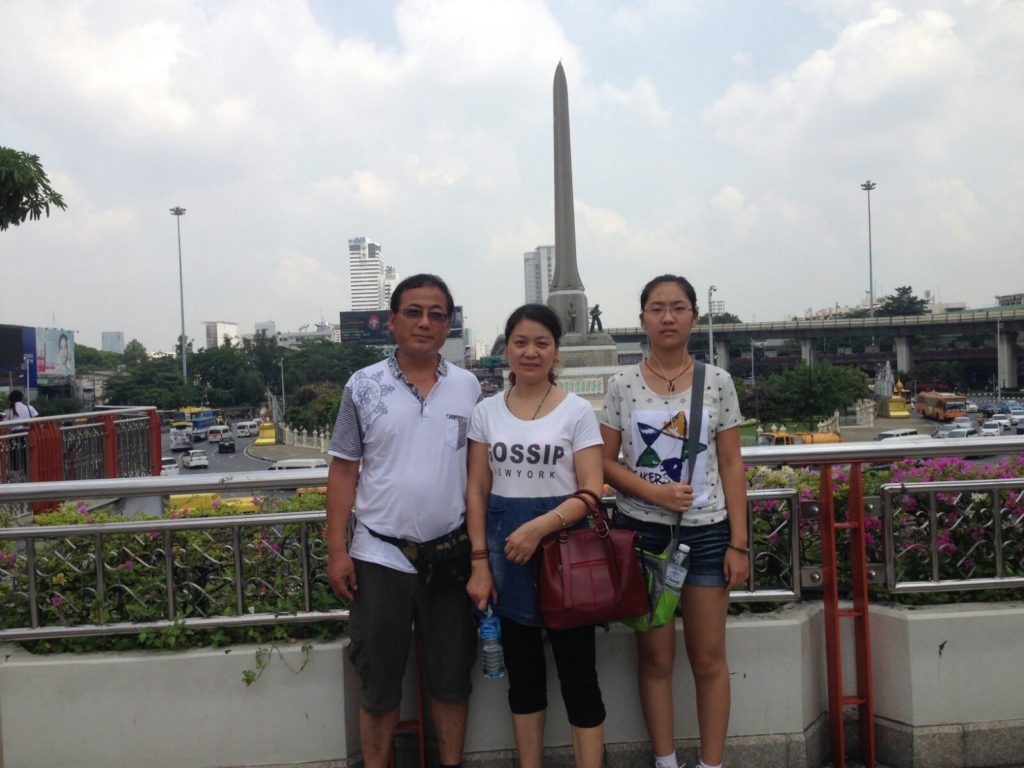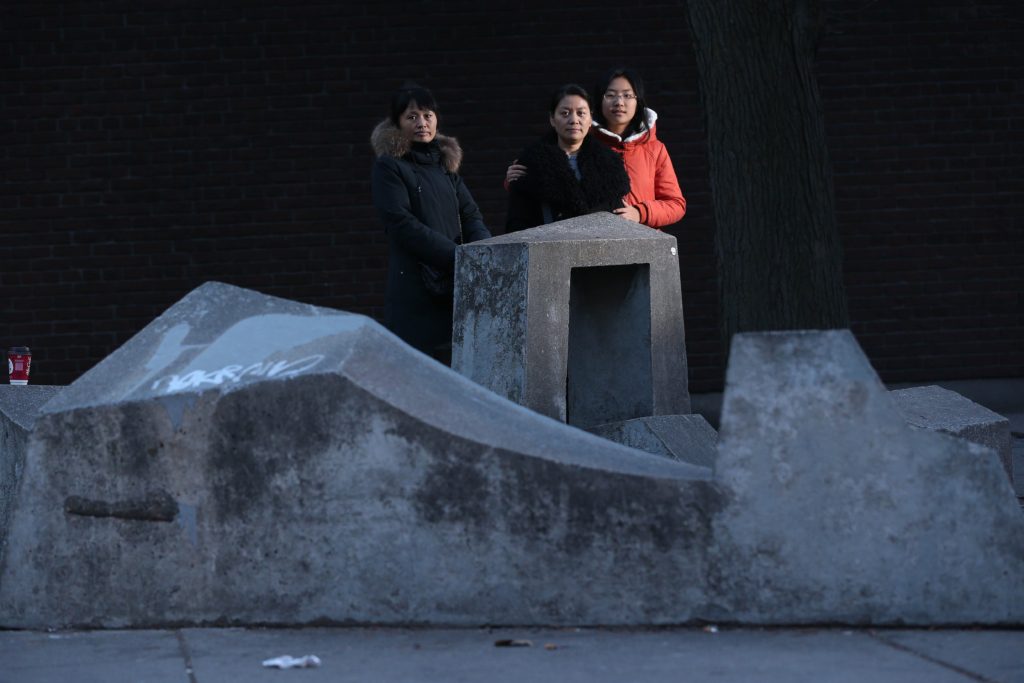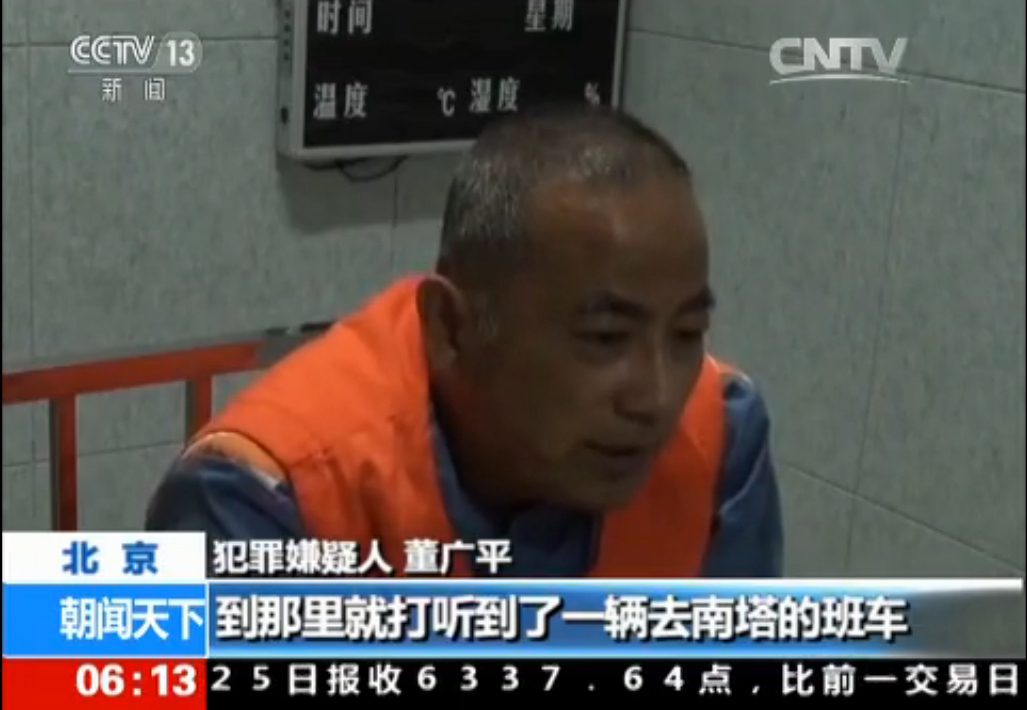Dong Guangping, a former police officer turned human rights activist, fled state persecution in China but was forcibly returned there in 2015 and has since been detained without trial. 13 April is Dong Guangping’s birthday, his third consecutive birthday in detention.
Dong Guangping was just five days away from freedom. He was set to leave Thailand to start a new life with his wife and daughter in Canada. He never made it. On 13 November 2015, the Thai authorities forcibly returned him to China.
Charged with “subverting state power” and “crossing the national border illegally”, Dong Guangping has languished in incommunicado detention ever since, at risk of torture and an unfair trial.
His case highlights not only Thailand’s failure to fulfil its obligations to protect refugees but also how China’s crackdown against critics has gone global.
Thailand is failing to protect people at risk of serious human rights violations once returned to the countries they left. Amnesty International estimates that in the last three years the Thai government has forcibly returned over a hundred people to countries including China, Cambodia and Bahrain.
I lost contact with my parents in China for a year. The police came to my parents' home and told them to ask me to go back to China or there will be consequences.”
Gu Shuhua. wife of detained Chinese activist Dong Guangping
Dong Guangping’s story
Dong Guangping was a policeman in Zhengzhou City, in central China, until his employment was terminated in 1999 after he co-signed a public letter commemorating the 10th anniversary of the 1989 Tiananmen Square crackdown.
Dong was imprisoned for three years in 2001 for his peaceful activism. It wouldn’t be the last time he would be detained.
He spent more than eight months behind bars, after being arrested in May 2014 for participating in another memorial for victims of the Tiananmen Square crackdown.
In September 2015, Dong left for Thailand to escape the harassment from the Chinese authorities, with his wife and daughter joining him later that month.
The family sought refugee status from the the UN’s refugee agency in Thailand, spending a few weeks together in Bangkok.
“Dong Guangping had stopped feeling worried as he had finally got freedom,” his wife, Gu Shuhua, recalled about their time in Thailand. “The police could no longer harass us.”
She added that the mental and emotional condition of their daughter, who has suffered from trauma since she witnessed her father’s arrest in a brutal raid on their home in 2014, had begun to improve.

But the family experienced a major setback in mid-October 2015 when Thai authorities arrested Dong for violating immigration laws.
Representatives of the UN refugee agency and diplomats visited him in detention and sped up the process for approving the family’s refugee status, which was granted in early November. The family was scheduled to leave Thailand on 18 November to resettle in Canada.
Gu Shuhua said that when she last saw her husband he looked relaxed and that he cracked a few jokes. He thought that he was safe and that very soon he would be reunited with his family.
However, a few days later, his wife got bad news. Dong had been forcibly returned to China, along with another Chinese activist.
“We didn’t expect that. Dong was very optimistic about his situation,” said Gu. “He thought that soon we would be resettled in Canada.”
“That day I had brought food and other items for him while in the detention centre,” she said. “I never expected that he would be taken away that night.”
The UN refugee agency, diplomats and human rights organizations condemned the Thai authorities for Dong’s forced return.
Thai officials admitted that they deported Dong at the request of Chinese authorities, but denied they were aware he had been granted refugee status to resettle in Canada.
The Office of the UN High Commissioner for Human Rights confirmed to Amnesty International that they had already been in contact with the Thai authorities.
Reuters reported that the UN refugee agency had also be in touch with the Thai government informing them of the resettlement before Dong was forcibly sent back to China.

Dong Guangping was later seen on 26 November 2015 on a China state television broadcast “confessing” to crossing the border illegally into Thailand.
After viewing footage of the confession, Dong’s family said he may have been subjected to torture or other ill-treatment. They found his facial expressions and tone of voice suspiciously different from usual, and thought he showed signs of pain and stress. In contradiction to Chinese and international law, Dong continues to be denied access to a lawyer of his choice. His family has received no formal notification of his detention, proceedings or possible trial.
No peace in a foreign country
After Dong Guangping was forcibly returned to China, Gu Shuhua and their daughter resettled in Canada. But they have been cut off from their family back home.
Gu Shuhua has been unable to contact her husband and has been unable to speak to her parents in the past year.
“I lost contact with my parents in China for a year. The police came to my parents’ home and told them that I am associated with “Western anti-China forces”,” she said. “They told them to ask me to go back to China or there will be consequences.”
She has also received threatening phone calls from a stranger in Cambodia. “That person said that he knew the person in charge of Dong’s case and told me the seriousness of the offence,” she said.
“He asked me to go back to China with my daughter and that the case could then be easily settled,” she added. “Otherwise he said Dong will be sentenced to at least 10 years imprisonment, or that I may not be able to see him again.
“He also played a recording of Dong being interrogated. It lasted only for ten seconds and it was not very clear. But I recognized his voice.”

Gu Shuhua said that though she is grateful to the Canadian government and local activists there who are helping her to adapt to their new surroundings, their new life is hard.
“We have been living with fear and anxiety,” she said. [My teenage daughter] feels insecure. She was traumatized by the incident of having witnessed her father get arrested three years ago. She often wakes at night, crying and yelling. She has not yet cast off the pain.
“When other people talk about her father she bursts into tears. She never talks to me about her dad, and does not allow me to talk about him,” she added.
Gu Shuhua says that she can’t get a job because she can’t speak English and that her daughter hasn’t made friends. They both stay at home most of the time.
For all their suffering, however, Gu Shuhua supports Dong’s activism. It was not always so. In the early days, she didn’t back him, because she thought “the price of democracy is too high” and that if he became overly involved he wouldn’t be able to support his family.
But in 2014 when her husband was among a dozen people arrested at the Tiananmen memorial event in Zhengzhou, her opinion altered.
“After Dong was arrested, I also held a placard and protested to different government authorities. I finally realized that I was deprived of my very own rights,” she said. “I gradually witnessed how human rights are suppressed under the Communist Party of China regime.”
I hope my daughter can live happily in a country with freedom. I hope she can integrate into society. I hope that I can get a job soon and live peacefully.
Gu Shuhua
The future?
Gu Shuhua still has hope for her family and China.
“I hope that [my daughter] can live happily in a country with freedom. I hope she can integrate into society. I hope that I can get a job soon and live peacefully. I sincerely hope that there will be democracy and freedom in China so I can go back to visit my family and friends.”
However, that prospect seems distant. There is a calculated operation by the Chinese government to suppress civil society. New or proposed laws give the authorities nearly unchecked powers to target individuals and organizations that are seen to criticize the government and its policies.
“I was told that recently [Dong] was transferred to a detention centre in a more remote location, where a lot of detainees are drug addicts. This makes me worry a lot,” said Gu Shuhua.
She added: “I hope that one day he can live his life with dignity, freedom and democracy.”


